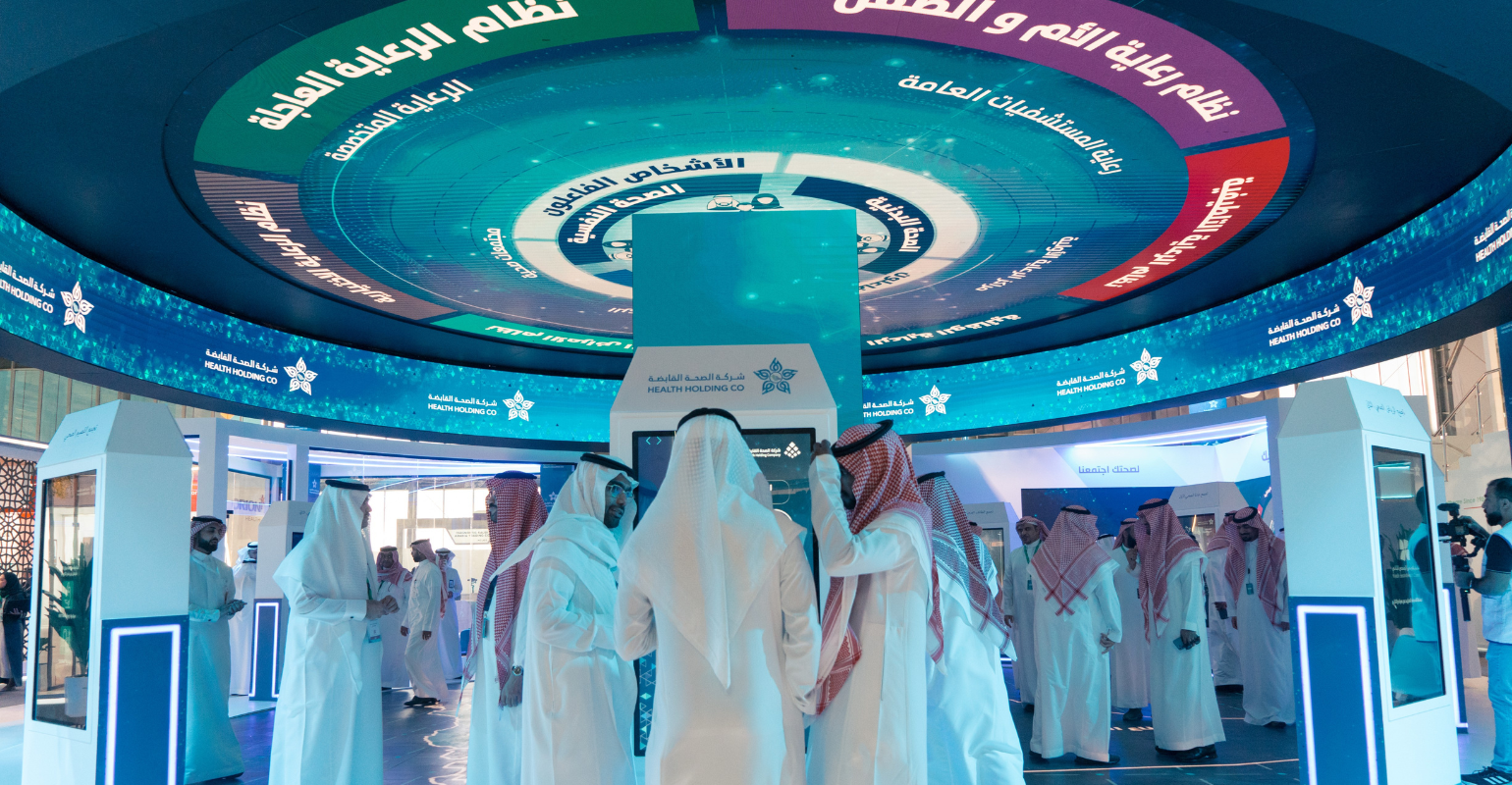
The world of health and medicine is evolving at an unprecedented pace, and technology is the driving force behind this transformation. At Global Health Exhibition 2023, Futurist and Physician-Scientist Daniel Kraft shared his insights on the future of healthcare, emphasising the pivotal role technology plays in reshaping the landscape of medicine.
Kraft, the founder of NextMed Health and Digital Health, Chair of the Pandemic and Health Alliance, and the mind behind Exponential Medicine, provided a presentation during his session on how technology is revolutionising healthcare. He began by highlighting the transition from the current healthcare model, which he described as “sick care”, to a future where health and medicine are continuous, personalised, proactive, and accessible from anywhere at any time.
In this new era of healthcare, technology is the driving force behind these transformative changes. The proliferation of digital tools and connectivity allows us to shift from episodic, reactive care to continuous, proactive health management. This transformation, according to Kraft, will not be limited to a particular region but will be a global phenomenon, making healthcare more democratic and available to all.
Related: The current status and future potential of AI in medical imaging
One of the key takeaways from Kraft’s presentation was the idea that fast-moving technologies can empower individuals to take charge of their health. Just as technology has enriched our lives in various ways, it can also upskill people to become better clinicians and patients. Kraft pointed out that certain technologies, like GPT-4, are advancing at an astonishing pace, often outpacing our ability to adapt to their capabilities in terms of regulation, reimbursement, and ethical considerations. However, he sees this as a unique opportunity to harness these technologies and guide them towards a brighter healthcare future.
Kraft shared examples of how artificial intelligence, specifically generative AI, is already transforming healthcare. Patients and parents are using AI to find diagnoses when traditional medical routes have failed them. Healthcare institutions are exploring ways to integrate AI into clinical workflows, anticipating significant advancements in AI’s diagnostic capabilities in the near future.
In the world of healthcare today, generative AI is helping to streamline communication, reduce friction, and improve patient care. It’s the dawn of an age characterised not just by generative AI but by generative health. Imagine having a personal health companion, a “personal co-bot,” tailored to your unique needs, assisting with prevention, diagnostics, and therapy. This concept ushers in an era of precision digital health, where new tools and technologies will work together seamlessly to enhance our overall well-being.
Related: GHE 2023: Saudi dignitaries attend Riyadh’s biggest healthcare show
As Kraft emphasised, health is wealth, and technology has the potential to redefine healthcare as we know it. Over the past decade, we have witnessed an explosion in health apps. In 2011, there were only a few thousand such apps available. Today, there are hundreds of thousands, providing resources and support for a wide range of health and medical needs.
In conclusion, the future of health and medicine is inextricably tied to technology. As these innovations continue to evolve, they hold the key to a healthier, more connected world.
Register NOW to engage in thought-provoking sessions and be a step ahead of industry trends. Doors to the second day of the Global Health Exhibition open at 9am.
Don’t forget to pick up your copy of Omnia Health from the entrances of Halls 1 and 4. As the official Editorial partner of Global Health Exhibition, the latest edition features insights from affluential leaders alongside key catalysts driving healthcare markets in the region. In case you missed it, you can access the digital version HERE.
Back to Technology
